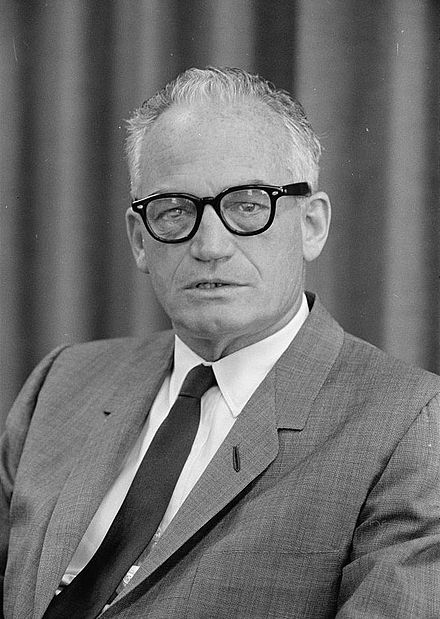Barry Goldwater, Environmentalist
Legal Planet: Environmental Law and Policy 2016-07-01

Barry Goldwater’s views on the environment didn’t have much in common with those of the present-day conservatives who are his ideological descendants. His 1970 book, The Conscience of a Majority, has half a chapter about the environment. “Our job,” he said, “is to prevent that lush orb known as the Earth . . . from turning into a bleak and barren, dirty brown planet.” Another quote that may surprise you: “I feel very definitely that the administration is absolutely correct in cracking down on companies and corporations and municipalities that continue to pollute the nation’s air and water.” “Although,” he continued, “I am a great believer in the free, competitive enterprise system and all that it entails, I am an even stronger believer in the right of our people to live in clean and pollution-free environments.”
Goldwater also applauded stern action against polluters. He applauded indictments brought by the Nixon Administration against “large corporations accused of dumping waste in our waterways and poisonous gases into the air we breath,” and he asked sarcastically why the Democrats had taken so little action on these issues during the many years when they dominated the federal government.
Goldwater was willing to contemplate some major societal changes in order to protect the environment.Here were some of the questions that, he said, confronted us:
“Whether man will be able to curb his taste for material luxury?”
“Will man bring himself to accept a substitute for the internal combustion engine, if that proves necessary, or at least a more expensive, less efficient fuel?”
“Will man be willing to restrict the consumption of electrical power until a safe and nonpolluting source of production can be found?”
I don’t want to romanticize Goldwater’s positions. He was a politician, and his votes on individual bills weren’t as environmentally strong as his language — he voted for the Clean Air Act but against the Wilderness Act; and abstained on the Clean Water Act along with a number of other Republicans, perhaps because of Nixon’s opposition to its large expenditures to fund upgrades for municipal sewage treatment.
Still, it’s hard to imagine any modern-day conservative politician asking whether we could eliminate gasoline as a fuel or restrict electricity consumption to prevent pollution. Not to mention questioning the desirability of luxury spending! The modern conservative movement has changed profoundly since the days of Goldwater — and, as I discussed in a previous blog post, since the days when Ronald Reagan was Governor of California.